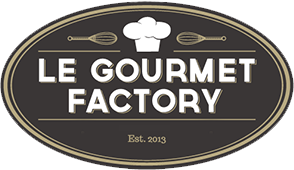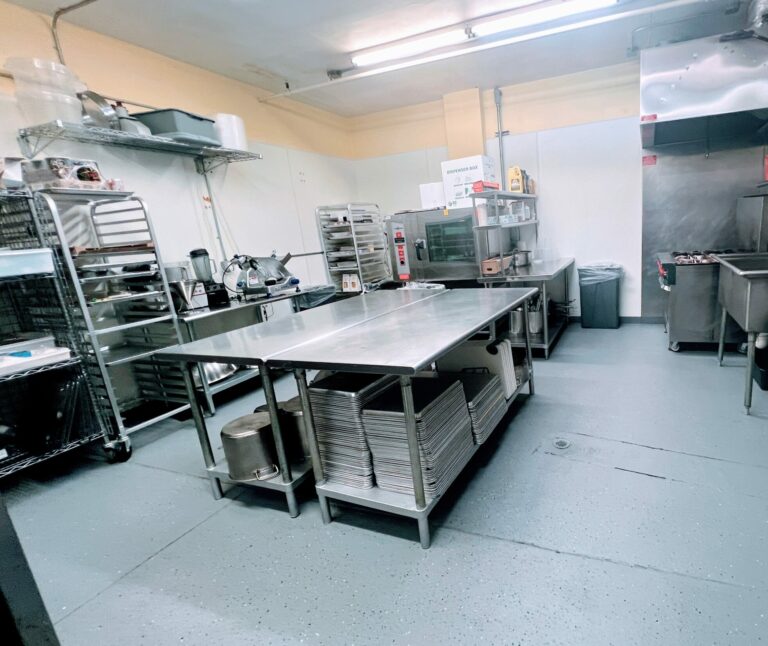Licensed Kitchen And Regulations For Ghost Kitchens
Understand licensed kitchen requirements and regulations for ghost kitchens, from permits to safety standards, to ensure compliance for your food business.
Continue exploring the next articles in this series:
Discover essential equipment and setup tips for ghost kitchens, from must-have appliances to layout strategies for efficient, high-quality production
Or navigate back to explore other related content :
Ready to grow your food business? Learn how operating from a ghost kitchen helps caterers, bakers, and meal prep services…
01: Introduction
As ghost kitchens gain popularity, understanding the licensing and regulatory requirements is critical for ensuring smooth and legal operations. Securing the proper commercial kitchen license and other permits not only protects your business but also reassures customers of your commitment to safety and quality. In this post, we’ll walk through the key licenses required, including a kitchen license and commissary license, and explain what license is needed to sell food from a ghost kitchen.
02: Importance of Licensing for Ghost Kitchens
Licensing is a foundational part of setting up a ghost kitchen. By obtaining a licensed kitchen status, businesses ensure that they meet all health and safety regulations, reducing the risk of fines and closures. The licensing process may vary depending on location and the specific type of food being prepared, but it’s essential for compliance and customer confidence.
03: Types of Licenses Needed
- Food Handler’s Permit: Required for anyone who handles or prepares food, ensuring they follow safe food handling practices.
- Commercial Kitchen License: This license is necessary to operate a commercial kitchen. It verifies that the facility meets local health and safety standards.
- Commissary License: If using a shared kitchen space, a commissary license may be required. This license applies to shared kitchens and verifies that the facility complies with food storage, cleaning, and safety regulations.
- Food Vendor’s Permit: This permit is essential if your business sells food directly to consumers. It demonstrates compliance with local sales and food safety regulations.
- Health Department Approval: Most kitchens need approval from the health department, which involves regular inspections to ensure cleanliness and safety standards.
04: Steps to Obtain a Commercial Kitchen License
Securing a commercial kitchen license can involve several steps:
- Research Local Regulations: Each city or state has its own requirements. Contact local health departments or regulatory bodies to understand specific guidelines.
- Submit a Kitchen Layout Plan: Some areas require a layout plan that shows the kitchen’s design, equipment placement, and safety features.
- Schedule an Inspection: Most licensing authorities will require a health inspection to confirm that the kitchen meets safety standards.
- Complete Training and Certifications: In some regions, food safety certifications are required for individuals working in the kitchen.
- File for a Food Vendor’s Permit: As part of the process, applying for a food vendor’s permit may also be necessary, especially if food is sold directly to consumers.
05: Understanding Commissary Licenses
For ghost kitchens that operate out of shared facilities, a commissary license may be mandatory. This license ensures that shared kitchens follow specific guidelines for equipment use, food storage, and sanitation, all of which are critical in shared spaces. The commissary license is designed to protect both the kitchen operators and the consumers, verifying that the facility is up to code and can safely support multiple food businesses under one roof.
06: Tips for Staying Compliant
- Regularly Review Local Regulations: Licensing requirements can change, so staying up-to-date ensures ongoing compliance.
- Schedule Routine Health Inspections: Some licenses, like the kitchen license, may require periodic inspections. Keeping your kitchen clean and well-maintained can help pass inspections without issues.
- Maintain Proper Documentation: Keep copies of all licenses, permits, and certifications in an easily accessible place for health inspectors.
- Stay Current on Employee Training: If employees need certifications, make sure they renew them regularly to keep the licensed kitchen status.
07: Time and Costs Involved in Licensing
The process of obtaining all necessary licenses for a ghost kitchen can require significant time and financial resources, which can be a barrier for many aspiring food entrepreneurs. Depending on the region and type of licenses needed, the time frame to complete all requirements can range from a few weeks to several months. Here’s a breakdown of what to expect:
- Application Fees: Fees for a commercial kitchen license and related permits can vary widely. For instance, a commercial kitchen license might cost between $300 and $2,000, while additional permits like a food vendor’s permit and commissary license could add several hundred dollars each.
- Inspection Costs: Some local health departments charge fees for initial and follow-up inspections, which can add between $100 and $500 to the total cost.
- Employee Certification Costs: If certifications are required for food handlers, business owners must account for training costs, which typically range from $10 to $100 per employee, depending on the certification level and training program.
- Waiting Periods: After submitting applications, there may be waiting periods for approvals, inspections, and license processing. Some cities or states have backlogs, so securing all licenses can take 1–3 months or more.
- Recurring Fees and Renewals: Some licenses require annual renewals or periodic re-inspections, meaning that licensing costs aren’t always a one-time expense. This can add recurring costs to a small business’s budget.
08: Licensing as a Barrier for Small Businesses
For small businesses or individual entrepreneurs, these licensing requirements can create a high entry barrier. The combined cost of applications, inspections, and training can be prohibitive, especially for startups working with limited capital. Additionally, the waiting periods can delay the launch, which impacts revenue and cash flow. Small businesses may also face administrative hurdles, as navigating the paperwork and coordinating inspections can be time-consuming without dedicated resources or legal guidance.
Many entrepreneurs consider alternative options, such as joining a licensed kitchen, (check out Le Gourmet Factory’s licensed kitchens for your business) or commissary facility, to reduce costs and streamline the licensing process. Shared facilities often handle certain licenses and inspections, allowing small businesses to focus on food production and sales without needing to secure every individual permit on their own.
By understanding these time and cost factors in advance, entrepreneurs can better prepare for the financial and administrative demands of operating a fully compliant ghost kitchen. Recognizing the licensing process as a necessary investment rather than an expense can help business owners plan strategically for long-term success.
09: Conclusion
Navigating the licensing and regulatory landscape for ghost kitchens can seem overwhelming, but understanding the requirements—from a commercial kitchen license to a commissary license—is essential. Knowing what license is needed to sell food and ensuring that your kitchen is fully licensed allows you to operate with peace of mind and focus on growing your business. With the proper permits in place, your ghost kitchen can thrive as a safe, compliant, and trusted part of the culinary industry.
- FAQ
fREQUENTLY ASKED QUESTIONS
What licenses are required to operate a ghost kitchen?
Most ghost kitchens require a food handler’s license, health department approval, and possibly a business license. Requirements vary by location, so check local regulations to ensure compliance.
Do ghost kitchens need health inspections?
Yes, ghost kitchens must pass regular health inspections to ensure they meet food safety standards. Inspections focus on cleanliness, food storage, and safe handling practices.
How do I get a kitchen licensed for commercial use?
To license a kitchen for commercial use, you must comply with health and safety regulations, secure a food handler’s permit, and pass health department inspections. Contact your local health department for specific steps.
Are there specific regulations for ghost kitchens?
While ghost kitchens follow general food safety laws, they may also need to comply with additional delivery-specific regulations, like safe packaging standards and strict labeling requirements.
How long does it take to license a ghost kitchen?
Licensing timelines vary by location and can range from a few weeks to several months. Planning ahead and having all necessary documents ready can speed up the process.
Continue exploring the next articles in this series:
Learn effective strategies for managing operations in a ghost kitchen, from inventory control to streamlining workflows for a successful food…
Discover essential equipment and setup tips for ghost kitchens, from must-have appliances to layout strategies for efficient, high-quality production
Or navigate back to explore other related content :
Ready to grow your food business? Learn how operating from a ghost kitchen helps caterers, bakers, and meal prep services…
- 176A South Van Brunt Street Englewood, NJ 07631
Copyright © 2023 Le Gourmet Factory. All Rights Reserved. Website Design, SEO and Internet Marketing by Creative Click Media.



